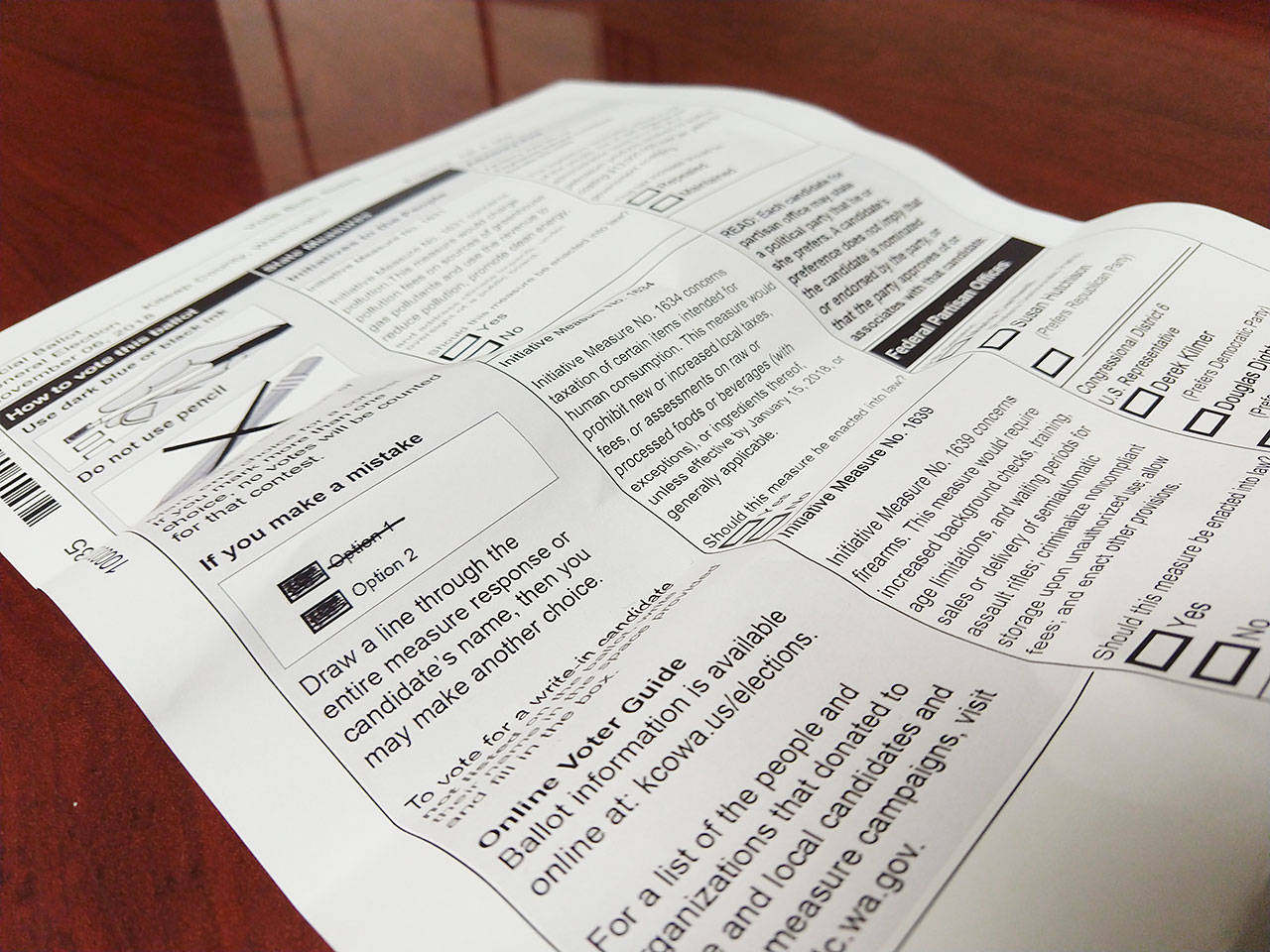Preliminary election results are in for four Washington state initiatives, which will affect state policy concerning police use of force, gun control, soda taxes and a carbon fee.
The first vote tallies were posted just after 8 p.m. on Nov. 6 after polls had closed on election day. Many of the races saw massive infusions of out-of-state money pouring into campaign coffers, including more than $31 million which was given to the No On 1631 campaign in opposition to a carbon fee. Nearly all of this money came from oil and gas giants like Phillips 66 and British Petroleum America. BP America in particular flushed the most money in, with nearly $13 million coming from the foreign-owned corporation. Supporters of I-1631 had raised around $15 million for their campaign.
In the initial ballot count results, the oil-sponsored no campaign had an 11-point lead at 55 percent with more than 1.8 million votes counted.
All results are according to the secretary of state’s website.
The initiative would create a $15 per ton fee on carbon emissions in the state, which would be levied on large carbon emitters beginning in 2020. It would effectively increase the cost of a gallon of gas by about 15 cents. Supporters say it is needed to curb climate change locally as the federal government ignores pollution and carbon emissions.
Initiative 1634 was also on the ballot and, if approved, would stop local governments from creating new taxes on groceries and on soft drinks. The initiative was prompted and sponsored almost entirely by the soda industry, including Coca Cola, which dumped more than $9 million into the race, and Pepsi with more than $7 million. In total, the Yes! To Affordable Groceries campaign raised more than $20 million. In contrast, the no campaign, led by the Healthy Kids Coalition had raised only $33,000, largely from health activist coalitions.
As of publication, nearly 54 percent of voters chose to enact the initiative, preventing local governments from enacting their own taxes.
Also on the ballot was gun control legislation in the form of Initiative 1639, which would place new restrictions on gun ownership in Washington state. The initiative was handily winning in early returns with around 60 percent of voters supporting it, compared to just more than 39 percent who voted against it.
If it passes, the initiative would require people wishing to buy semi-automatic rifles, like the AR-15 model, go through a training course. Additionally, it would submit their personal information to law enforcement and would criminalize gun owners if their weapon was used to commit a crime. Additionally, it would let the state build a database of semi-automatic rifle owners, which would require they remain eligible to own guns on a regular basis.
Supporters hope it will help reduce gun violence and mass shootings while keeping weapons out of the hands of domestic abusers, criminals and those barred from owning firearms. Safe Schools, Safe Communities is the primary organization supporting the initiative and had raised nearly $5.5 million in opposition to the no campaign run by the National Rifle Association which had raised far less.
The last initiative Washington voters were asked to decide on was Initiative 940. It would require law enforcement officers to receive de-escalation and mental health crisis training and also mandate police to provide first aid if it is needed. It also changes state law, which requires prosecutors prove an officer who kills someone was acting in “good faith.” This would let police shoot someone legally only if “the use of deadly force was necessary to prevent death or serious physical harm to the officer or another individual.”
Coupled with this, a police shooting would only be legally justifiable if they believed deadly force was warranted in the circumstances, lowering the bar for prosecutors to go after police who kill. Currently, prosecutors must prove an officer shot and killed with the intent of “malice,” a loose legal term that is difficult to prove.
On Tuesday evening it was passing with nearly 60 percent of the vote.
Ballots will continue to be counted over the following week and the Reporter will provide updated information as it becomes available.
These figures are correct as of 8:40 p.m. on Nov. 6.


